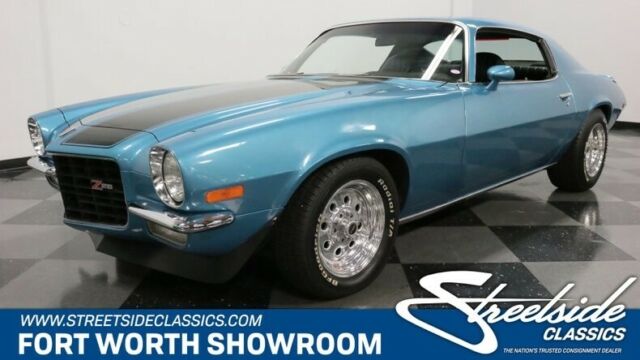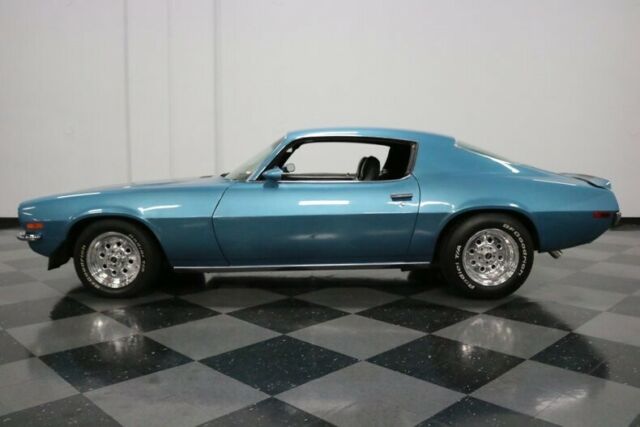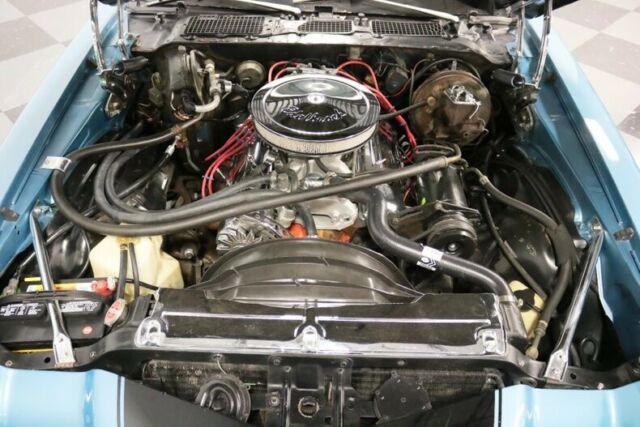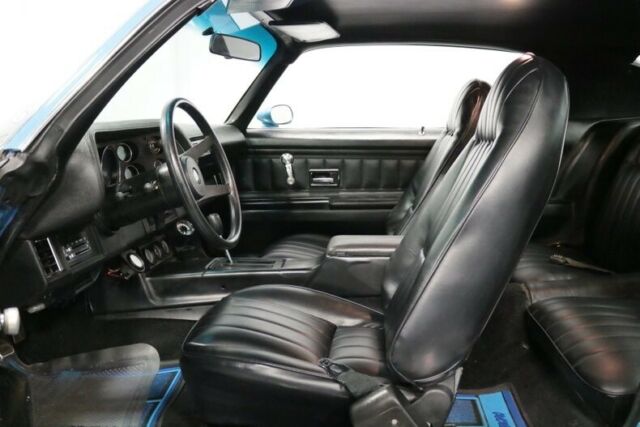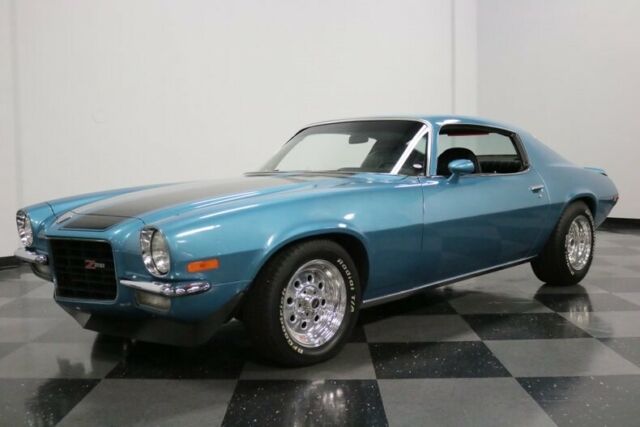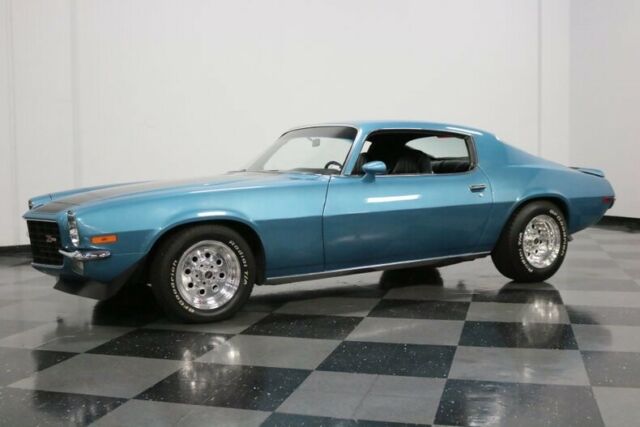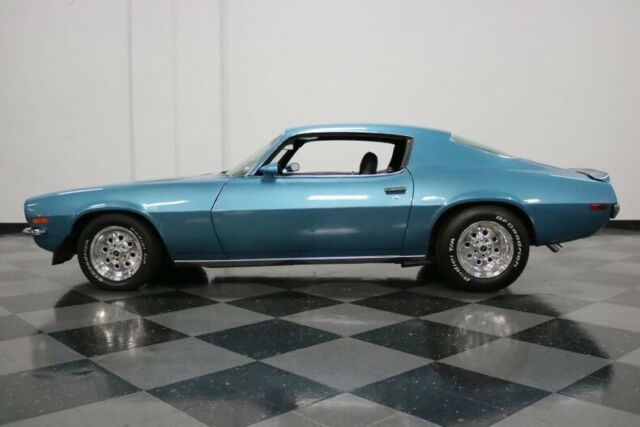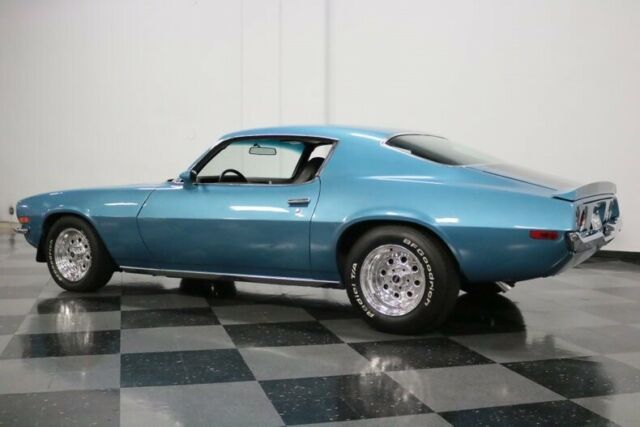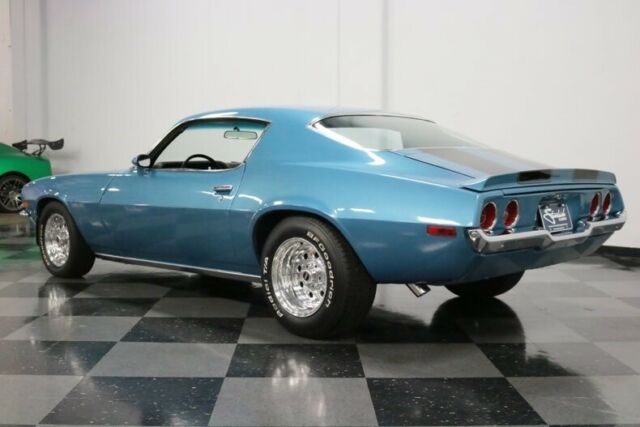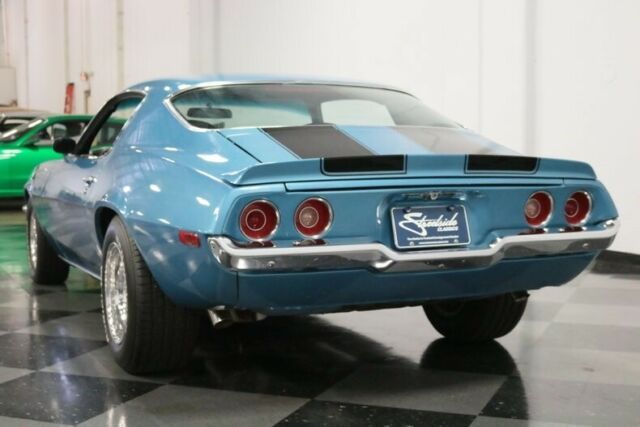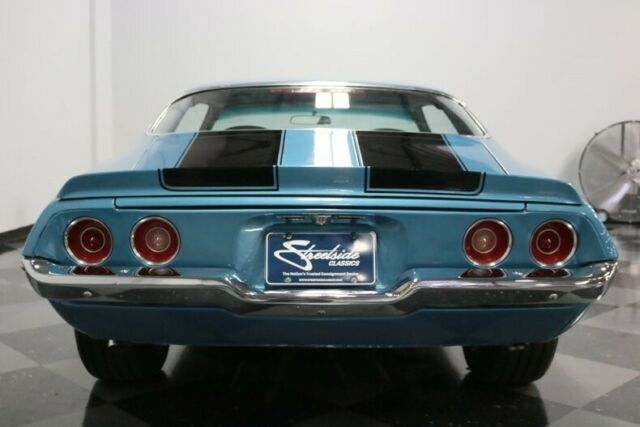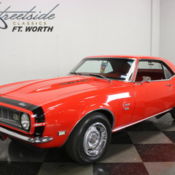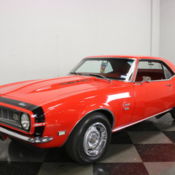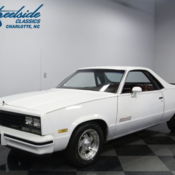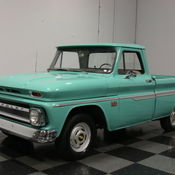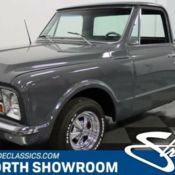|
This 1973 Camaro Z/28 RS Tribute is evidence that second-generation F-bodies are some of the best cars GM ever put out. The vivid paint job recent and works quite well on the sleek shape, incorporating traditional details that make it look timeless. Add in a nicely appointed interior and a strong running small block, and you have an easy summertime cruiser that looks like a million bucks and runs even better. These cars were second-class citizens for... so long that finding a straight, clean one like this is no easy task. This one was originally code 26 Dark Blue, but the restorers lightened things up a bit with a recent respray of Medium Blue that look great. It's not perfect, of course, it's not that kind of car, but even Camaros right out of the factory rarely looked this good. And there are no surprises waiting underneath and all the stock body panels are as they should be, including the stock flat hood and a ducktail spoiler out back. Fit and finish are quite good for 1973 General Motors assembly line work, evidenced by the unbroken body line that stretches between the wheel wells and the flush-fitting hood. Z/28 badges standout against the bright blue paint, and bright chrome bumpers look great, particularly against the blacked-out grille that was added for the faux RS conversion. If you're a fan of muscle cars, this one will delight you with its tough looks and sleek design. Black buckets that are as comfortable as they look were one of GM's better ideas in the 1970s, and give this Camaro (and its cousin, the Firebird) a modern look that still works today. As well-restored as the exterior, the interior still looks quite fresh with seat covers still in great condition, slick black door panels, and a matching carpet that is a bit older but still in good condition. The driver-oriented dash puts a full array of gauges ahead of the steering wheel, and they're complemented by auxiliary gauges under the dash, including a SunPro tachometer. And the middle console ensures that the shifter is never far from reach. Options include a tilt steering column, and AM/FM/Cassette stereo radio, and factory air conditioning that's filled with R134a refrigerant, which was still considered cutting edge in 1973. Open the trunk and you'll get a better idea of how clean this car really is, showing off clean panels and plenty of room for lots of luggage. Even in 1973, the drivetrain is potent enough to live up to the promises made by the bodywork. The 350 cubic inch V8 under the hood is the car's original, numbers matching block, and it's really running great today. It's punched up a bit with an Edelbrock 600CFM 4-barrel carburetor that sits atop an aluminum intake, an HEI ignition, and mid-length headers that feed the dual exhaust. With a few chrome dress-up bits, including a set of shiny valve covers and an Edelbrock air cleaner, it looks flashy under the hood and begs to be shown at the car shows. Along with the factory A/C equipment came power steering and power front disc brakes, probably standard on this car in 1973. The TH350 3-speed automatic transmission is likely the original and makes the car a lot more civilized, especially with highway-friendly gears in the 10-bolt rear end. The floors are solid and lightly dusted in satin black paint and the dual exhaust has a great rumble due to the FlowFX Flowmaster mufflers. That awesome stance comes easy, thanks to a set of 15-inch Weld wheels wrapped in staggered 215/60/15 front and 255/60/15 rear BFGoodrich T/A radials. Watch for these cars to be the next big thing as the first-generation F-bodies continue to appreciate. With this car, it's an easy choice to make and its nice restoration makes it the car to preserve for future investment. Call today!
|
 Home
Home Contact us
Contact us NEWEST CARS
NEWEST CARS SELL YOUR CAR
SELL YOUR CAR FAQ
FAQ